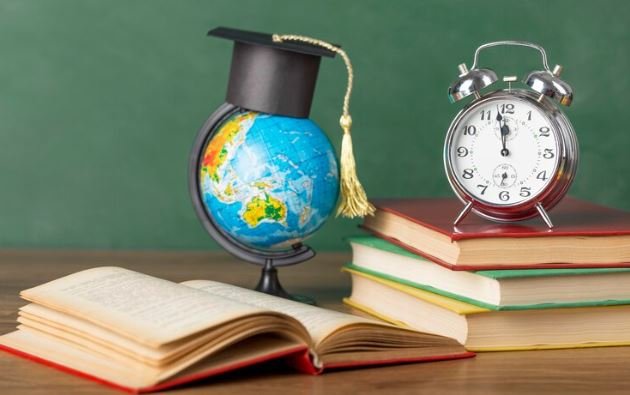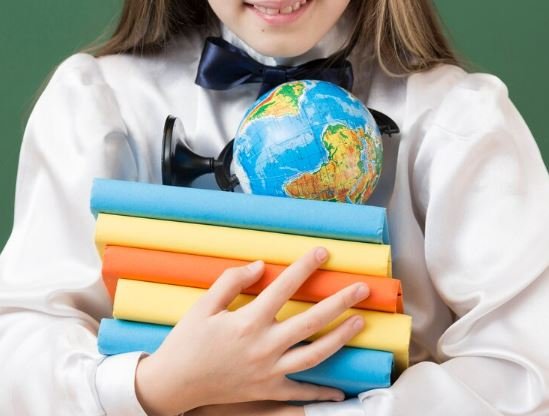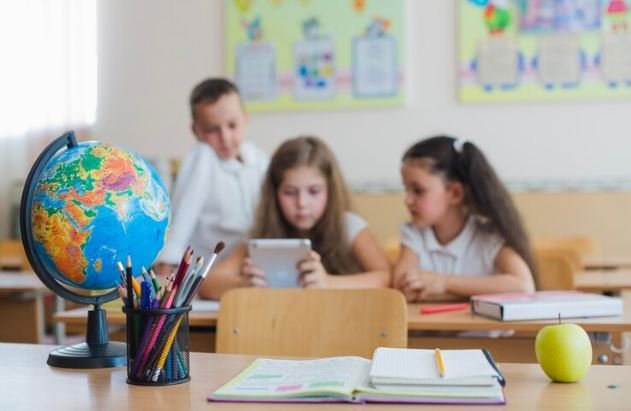Globalization means the way different countries and people from all regions affect, are affected or act together; it is a HUGE word with lots of implications. Picture this room to be the world and a classroom, where anybody can come up with their ideas about knowing things, learning new stuff or even together but our state apart.
The essence of globalization in education is just this: we work and learn together. Globalization And Its Influence On Education Today: It is changing the structure of how every child globally (including you) learns and goes to school.
What is Globalization?
So now the next step would be to understand what is globalization First before I tell you how it changes education. Globalization is the bottom-up mixing of people, goods and services, ideas and cultures between different countries. There is that mixing, because of aeroplanes, the internet and companies that operate in lots of countries.
That’s part of globalization For example if you have friends who live in other countries and talk with them Internet.
The Effect of Globalization on Education
Now let us think how globalization has changed the way we learn — and what may come across our path in school. Kids used to only get news from their town or country ages ago. However, in this era of globalization, with a click we can inform children like you of other countries and cultures even languages.
In any number of ways, you might learn about the Great Wall of China read stories from Africa or how to say hello in different languages like Spanish and Japanese.
This makes learning way more fun because it helps you understand the world better. And you learn that everyone is different and the same — no matter how they look, what language they speak or where on the planet we may live.
Global Education and Learning New Skills
In the era of globalization, this means that what you learn in school today has global applications. This matters because someday when you are older, a job could allow you to work with people from other countries and not have gone outside your town. It could be something as simple as learning how to use a computer, solve problems or even speak another language — these are versatile skills you can practice nearly everywhere. Thus, globalization helps education to become more practical and applied instead of academic-oriented (Altbach).
Sharing Ideas and Knowledge
Globalization is also very exciting, which allows faster idea sharing between individuals than ever before. This is how teachers learn new ways of teaching from the teachers in other countries, and students can learn more things being living at different ends of the world. For instance, your educator might have you use a newly designed game in another country to learn math or science.
Furthermore, thanks to globalization, schools can use the best ideas from anywhere in the world to assist students learn better. It translates across cultures, teaching you about new people and how to accept others who may not be like yourself.
The Issue of one global world in education
There are several benefits that we can get from globalization in terms of education but there is an increasing challenge and problems at the same time. The problem here is that resources are not equal in every school all around the world. For instance, some schools may not have sufficient books or computers available to help students learn as well. These inequities can often prevent students in one place from learning as much as those elsewhere.
The challenge on the other hand is… it can all feel like a bit…. rebirth of nations and ideas from around the world — causing information overload. The outcome might be teachers and students alike feeling an array of not-enoughs. This is why it’s so crucial to slow things down and grasp what you’re trying to learn.
Language and Globalization
What is evident here and ties in with the thesis on Greek schools being particularly reflective of global trends, is an internationalization trend like everywhere else where learning foreign languages has become very visible. Most schools require the students to take a second language, such as spoken English, Spanish or French. The fact if you know another language, as a result, will help You talk with people from outside and get down their culture.
If you learn English, for instance, you can converse with people from places such as the United States, England and Australia. It also helps you expand your brain and be able to problem solve more proficiently as well enhancing creativity.

Globalized World Begets More Options
Globalization has also altered the educational delivery system. In the days of yore, learners learned from a teacher in the classroom. But you can now learn in a plethora of ways due to globalization and technology. It could be taking online courses from Harvard, watching a video series in Japanese or even playing games that help you learn something.
This means that you have plenty of choices in your learning modalities, meaning it can be more enjoyable! The great thing is you can search through things which interest you on your terms.
Preparing for the Future
Globalization can play a huge role in getting you ready for the near future. This is a fast-changing world and the jobs that will be there when you grow up may not exist or look very different from what people are doing now. This is you prepping for those opportunities, as your new skills combine with a knowledge of intertwining worlds.
For instance, if you are good at doing things like using technology, figuring out problems and interacting with people from different cultures now when you grow up very interesting jobs. That is why it pays for you to continue learning and having a curiosity about what goes on around you.
Bringing the World Together
The most significant effect of globalization on education is that it unites the whole world. It is easy for children from different countries once they come to know about each other, what it means and how things work in their zone. This would lead to a peaceful and loving world.
If you find out how kids in other countries — what they eat, or the games they play — you might discover new things about yourself by identifying with far-off children. This knowledge might inspire friendships and or some sort of world order to prevent any country from confiding itself into the veins.
The Role of Technology
Globalization and Education in Technology With the help of computers, the Internet and smartphones students as well as teachers can easily get any information at a click. Through technology, you can watch videos from a different country with similar interests as your own or talk to someone across the world somewhere but use that language feature.
You even take virtual tours over at another continent in an art museum on their end all thanks to what tech has been able us access. Instructors also get technology support to explore inventive ways of tutoring the lessons as well. It can help teachers to use videos, games or interactive websites to make their learning more interesting. This keeps you invested and stoked to learn.

Cultural Exchange and Globalization
Globalization has made it quicker and easier for people to experience different cultures. For schools, this can include learning about traditions in other cultures and foods of the world or holidays from across international regions. For instance, you could explore Chinese New Year with your students; how to make an Italian meal or listen to music from Africa.
These cultural exchanges are critical they help you to understand and appreciate the richness of this world. They also remind you that, with exceptions in tradition aside, everyone connects on a few fundamental ideas like family friendship and humanity.
Why Learning is Important Throughout your Life
The value of learning that never stops: In the end, globalisation is a part-time school. The world is constantly evolving and there are always new things to be discovered. The fact is even after school, learning and gaining knowledge needs to be inculcated. This will prepare you for any adverse circumstances and leverage new possibilities ahead.
For instance, we will see new and improved tools and strategies due to an ever-evolving print market. If you are open to learning, that is how you will be able to adapt and stay ahead of the curve as things continue moving forward.
Conclusion
All- in all globalization has affected education in a both positive and negative way. It provides you with new possibilities for discovery, helps in the building of life-long aptitudes and unites diverse social groups. By familiarizing yourself with the world outside, and being curious about different cultures and ideas you are getting prepared to be part of a global (everyone sharing, learning & growing together) society.


